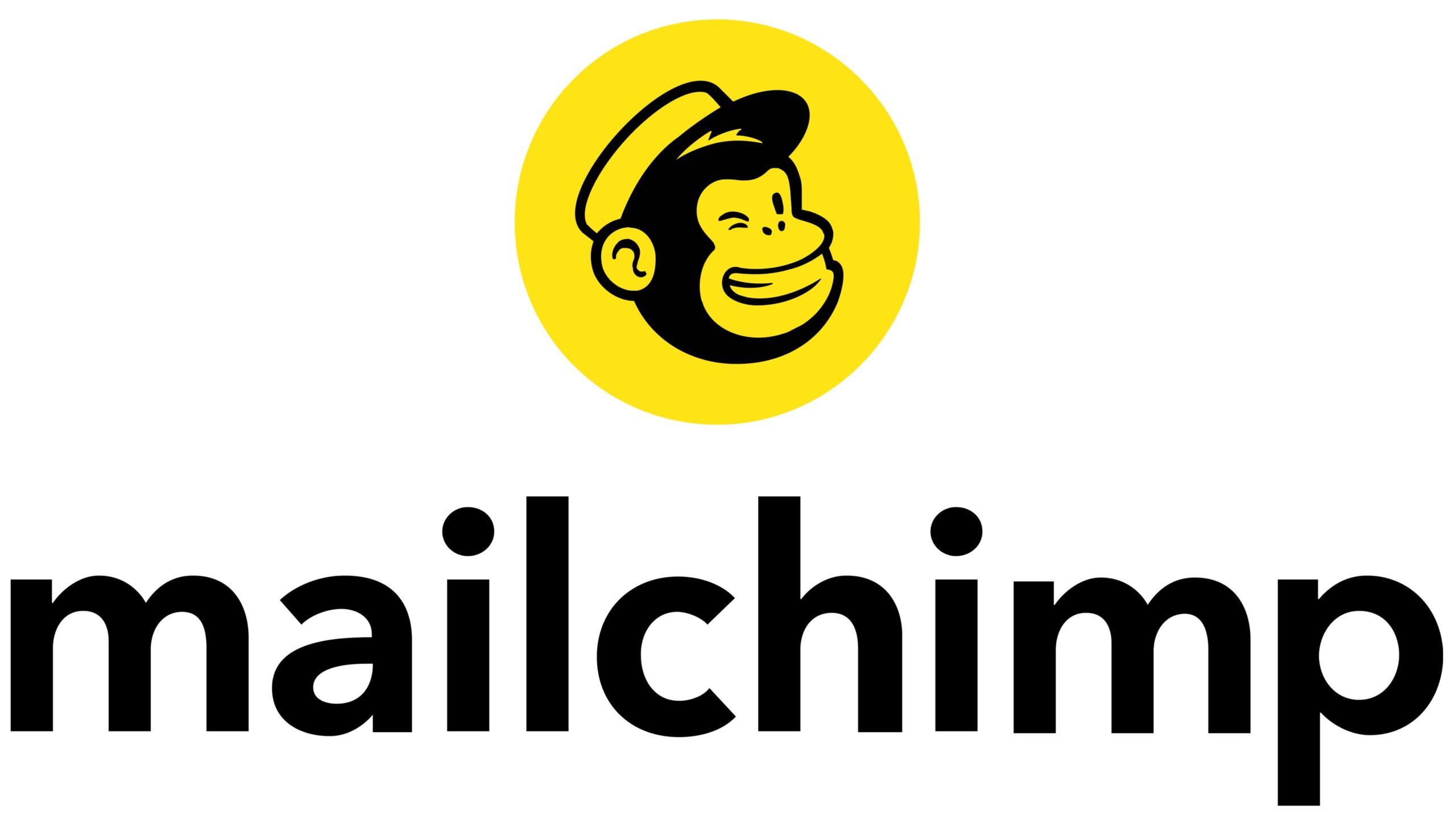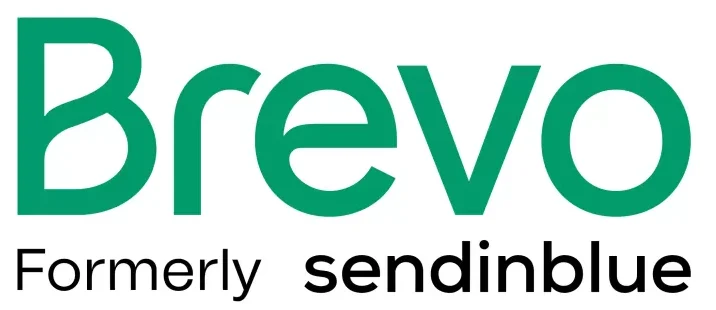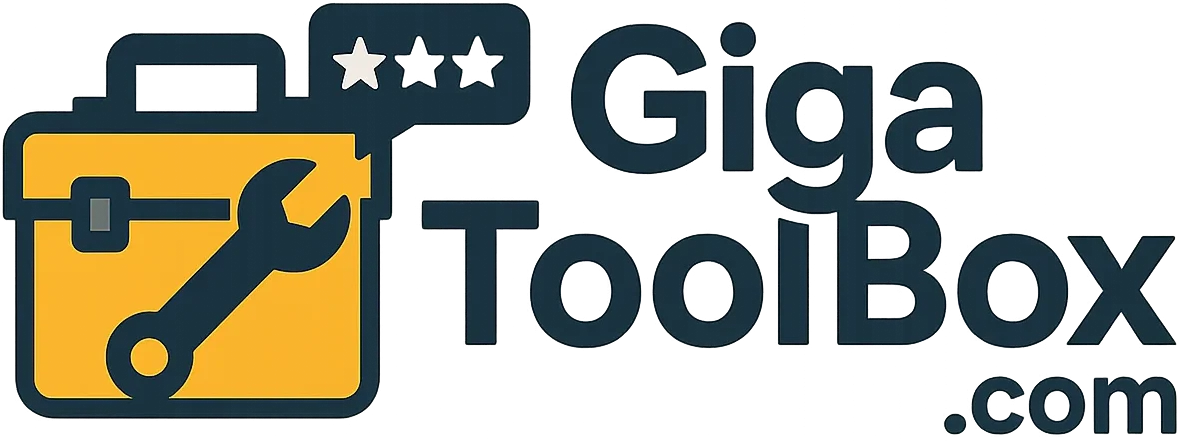
In the ever-evolving digital landscape, choosing the best email marketing tool can significantly impact your communication, engagement, and ROI. Whether you’re a content creator, SMB, or enterprise, the right tool streamlines audience outreach, boosts conversions, and enhances analytics. Below, we’ve curated a list of the top 10 email marketing tools in 2025, highlighting their key features, pricing, and ideal use cases.
Top Email Marketing Tools in 2025 summarized
| Email Tool | Best For | Starting Price | Key Features Highlights |
|---|---|---|---|
| Mailchimp | Beginners, SMBs | Free / ~$13/mo* | Drag‑and‑drop editor, A/B tests, automation journeys, rich analytics |
| HubSpot | CRM-driven teams, enterprises | Free / ~$50/mo* | CRM integration, AI personalization, workflows, analytics dashboards |
| ActiveCampaign | Advanced automation | $29/mo (1k contacts) | Conditional logic, CRM, split-testing, robust automation sequences |
| Brevo (formerly Sendinblue) | Multi‑channel outreach | Free / $25/mo | Email, SMS, transactional messaging, workflows |
| Constant Contact | Events & small businesses | $12/mo | Event tools, surveys, high deliverability |
| GetResponse | Webinars & funnels | $19/mo | Landing pages, webinars, sales funnels |
| Moosend | Budget-focused automation | Free / $9/mo | Personalization, template automations, segmentation |
| ConvertKit | Creators & bloggers | Free / $15/mo | Tag-based automation, funnels, creator audience tools |
| AWeber | Beginners, small business | Free / $19/mo | Reliable deliverability, support, templates, segmentation |
| MailerLite | Simple & affordable | Free / $10/mo | Automation, landing pages, A/B testing, lightweight interface |
*Prices based on entry-level paid plans; all pricing scales with subscriber count.
10 Best Email Marketing Tools 2025
1. Mailchimp

Mailchimp remains a go-to choice for small businesses and solo entrepreneurs thanks to its polished, intuitive interface and expansive feature set. The familiar drag-and-drop builder makes designing responsive newsletters a breeze, while over 240 premium templates ensure your campaigns always look professional. What sets Mailchimp apart is its automation workflows — including customer journeys triggered by behavior, dynamic segmentation based on engagement, and personalized product recommendations using AI. Analytics are robust, with in-depth A/B testing, send-time optimization, and predictive insights into audience behavior. The free plan covers up to 500 contacts and 10,000 emails monthly, ideal for newcomers, while Essentials (from $13/month) and Standard ($20/month with advanced automations) offer scalable options for growing audiences.
Key Features:
- Visual email editor + extensive template library
- Customer Journey automation with conditional branching
- AI-powered recommendations and send-time optimization
- A/B testing and performance analytics
Pricing:
- Free: up to 500 contacts
- Essentials: from $13/mo
- Standard: from $20/mo
- Premium: from $350/mo
Best For: Beginners and small businesses looking to launch polished email campaigns with growth-ready features.
2. HubSpot Marketing Hub

HubSpot’s Marketing Hub delivers enterprise-level email capabilities backed by CRM and AI intelligence. The WYSIWYG email editor paired with AI suggests subject lines and body copy based on open rates, while dynamic personalization allows content blocks to adapt based on contact properties or behavior. Automation flows — complete with lead scoring, engagement tracking, and task creation — make complex workflows intuitive. Dashboards offer insights into KPIs like funnel progression, email performance, and campaign ROI. The free Starter plan includes email, CRM, and contact management for unlimited users, with paid tiers (~$50+) opening AI-powered send-time suggestions, advanced analytics, and enterprise-level automation.
Key Features:
- AI-driven content & send-time optimization
- CRM-informed personalization (custom fields, behaviors)
- Visual workflow builder with lead scoring
- Analytics dashboards and conversion tracking
Pricing:
- Free: includes email, CRM
- Marketing Hub Starter: from ~$50/mo
- Higher tiers scale with contacts and automation needs
Best For: Growth-focused enterprises needing CRM-backed, highly personalized email outreach.
Read our full review of HubSpot Marketing Hub here
3. ActiveCampaign

ActiveCampaign is a powerhouse for marketers seeking precision and control. Its visual automation builder supports intricate paths with conditional logic, goal tracking, and dynamic splits. The platform also features a built-in CRM and sales automation, allowing seamless transitions from email campaigns to deal management. With over 900 automation templates, extensive segmentation and lead scoring, it satisfies both marketing and sales teams. The drag-and-drop email editor and 240+ templates simplify campaign design. Users benefit from dependable performance and scalability that delivers strong ROI.
Key Features:
- Advanced automation with conditional steps and splits
- Integrated CRM and sales pipeline automation
- Lead scoring, deep segmentation, A/B testing
- Rich email builder and template library
Pricing:
- starts at $29/mo for 1,000 contacts
- CRM add‑on ~$50/mo
- Professional & Enterprise tiers available
Best For: Businesses and agencies requiring advanced, data-driven automation and integrated CRM capabilities.
Read our full review of ActiveCampaign here
4. Brevo (formerly Sendinblue)

Brevo offers true multi-channel marketing at a competitive price. Its platform supports email, SMS, WhatsApp, chat, transactional emails, and CRM — all managed seamlessly from one interface. The AI-driven “best time” send feature optimizes delivery windows based on campaign history. Transactional APIs and SMTP relay allow brands to hook into e-commerce and apps. The automation suite covers everything from welcome journeys to complex lead-nurture sequences. The free plan includes 300 emails/day and unlimited contacts; Premium (~$25/mo) scales to 20k emails with workflow capabilities. SMS and WhatsApp add-ons offer true omnichannel reach.
Key Features:
- Multichannel (email, SMS, WhatsApp) campaigns
- AI-powered send-time and content optimization
- Transactional emails via API/SMTP
- CRM, automation workflows, contact scoring
Pricing:
- Free: 300 emails/day
- Premium: ~$25/mo (20k emails)
- Scale with add-ons
Best For: SMBs seeking reliable email + SMS within a unified, affordable platform.
Read our full review of Brevo here
5. Constant Contact

Constant Contact doubles down on ease and deliverability. It offers a refined drag-and-drop editor and a strong template library. Its platform includes event management tools — like registrations, reminders, and ticketing — plus surveys and polls. US users can send SMS messages using dynamic contact variables. With consistently high deliverability (90%+), it’s a trusted solution for small businesses. While not the flashiest, its reliability, support, and event features make it practical for local marketers. Plans start at ~$12–15/mo for 500 contacts, scaling upward as lists grow.
Key Features:
- Email + SMS with dynamic personalization
- Event and registration management
- Surveys, polls, social publishing
- Solid template library and high deliverability
Pricing:
- Basic: ~$12–15/mo for 500 contacts
- Grows with list size
Best For: Local businesses and nonprofits needing simple email + event tools with excellent delivery.
Read our full Constant Contact review here
6. GetResponse

GetResponse excels at combining email with webinars, landing pages, and conversion optimization. It features a drag-and-drop email editor, a funnel builder, and webinar hosting — all under one roof. Its dashboard scores high for ease-of-use and support, with intuitive UI, multilingual live chat, and email support. Templates for newsletters, funnels, and event invitations allow quick setup. Though some deeper automation can feel clunky, it’s a strong all-in-one suite for small businesses. Free tier supports 500 contacts; paid plans begin at $19/mo. Higher tiers add webinars, CRM, and chat.
Key Features:
- Email editor + conversion funnels + webinar hosting
- Landing page builder
- Templates for multiple campaign types
- 24/7 multilingual support
Pricing:
- Free: 500 contacts
- Paid from $19/mo (funnel features added at higher tiers)
Best For: Businesses leveraging webinars and landing pages alongside email within one cohesive platform.
Read our full review of GetResponse here
7. Moosend

Moosend delivers surprisingly powerful automation on a shoestring budget. Its platform includes robust segmentation, personalized dynamic content, and automation workflow templates. The email editor is intuitive, and a starter can build campaigns in around 15 minutes without tutorials. Over 75 responsive templates come bundled, and the platform supports tagging, behavior tracking, and cart recovery automation. With plans from $9/mo (1,000 contacts) and a free tier, it’s a top pick for cost-conscious teams needing core automation.
Key Features:
- Budget-friendly automation & personalization
- Easy drag-and-drop building with templates
- Segmentation, behavior tracking, cart recovery
- Quick campaign setup, intuitive design
Pricing:
- Free up to 1,000 contacts
- Starter from $9/mo
Best For: Small teams and solopreneurs demanding automation without complexity or high cost.
Read our full review of Moosend here
8. Kit (formerly ConvertKit)

Kit, formerly known as ConvertKit, is laser-focused on creators — bloggers, authors, podcasters — providing frictionless audience growth tools. Its tag-based system simplifies segmentation, and sequence editor helps craft drip campaigns with ease. It includes clean landing page templates (even on free plans) ideal for running giveaways or capturing email opt-ins. Its Creator Profile and network tools support community building and monetization. Users report strong deliverability and open rates (~25%), though costs escalate with large lists and forms are relatively basic.
Key Features:
- Tag-and-sequence-based automation
- Landing pages and forms on free plan
- Creator Profile and community network tools
- Secure data handling, GDPR-compliant
Pricing:
- Free up to 300 contacts
- Creator plan ~ $15/mo
Best For: Content creators seeking nurture sequences and conversion-focused email funnels.
Read our full review of Kit here
9. AWeber

AWeber is a veteran email tool delivering reliable deliverability, straightforward templates, and responsive customer support. Users benefit from a clean builder, segmentable lists, and prebuilt automation. The platform enforces best email practices via DKIM and domain authentication. Free tier supports 500 contacts; Lite plan (~$19/mo) adds more templates and automation. With excellent phone and chat support, it’s ideal for those who need solid guidance.
Key Features:
- Clean email builder with quality templates
- Deliverability safeguards (DKIM, authentication)
- Segmentation and basic automation
- Award-winning customer support
Pricing:
- Free up to 500 contacts
- Lite from ~$19/mo
Best For: Beginners needing a no-nonsense, support-rich email platform.
10. MailerLite

MailerLite offers a minimalist yet capable platform that includes landing pages, A/B testing, and automation — all within a beginner-friendly interface. Its dashboard is uncluttered, email and form designers are sleek, and light automation makes drip campaigns accessible. The platform’s free tier (1,000 contacts) includes core features, and pro plans start at ~$10/mo. It’s ideal for freelancers and small teams wanting simplicity without sacrificing key marketing tools.
Key Features:
- Simple, clean UI with essential builders
- Automation workflows and A/B testing
- Landing page and pop-up capabilities
- Ideal for low-tech users
Pricing:
- Free up to 1,000 contacts
- Pro from ~$10/mo
Best For: Freelancers and small businesses needing practical, easy-to-use email and landing page tools.
How We Tested These Tools
Our evaluation process is designed to simulate real-world use cases across a range of industries and user skill levels. Our team of email marketing experts, digital strategists, and conversion specialists thoroughly tested each platform over a multi-week period. We set up real campaigns, imported sample contact lists, triggered automation flows, and monitored performance across various KPIs. Here’s how we approached our analysis:
Feature Depth: We explored the core functionalities of each tool, including drag-and-drop editors, template variety, segmentation capabilities, workflow customization, CRM integrations, and multichannel outreach (e.g., SMS, transactional emails, webinars).
User Experience: We scored each tool based on interface intuitiveness, onboarding speed, usability for non-technical users, available documentation, and the efficiency of setup processes. We also evaluated how smoothly new users could get from sign-up to first campaign launch.
Value Analysis: We compared the value offered at each pricing tier, especially focusing on what was included in free plans versus entry-level paid subscriptions. We assessed scalability, list-size pricing increments, and whether premium features like A/B testing or automation were locked behind higher tiers.
Support & Community: Each platform’s customer service was evaluated through live chat interactions, email ticketing, and response time analysis. We also reviewed community forums, knowledge bases, and tutorial content to see how well users could self-serve.
Live Campaign Performance: We ran email sequences across test accounts for every tool to assess deliverability, open/click rates, and bounce handling. These metrics were benchmarked against historical performance standards. For tools offering AI or predictive insights, we tested their effectiveness at improving engagement.
Conclusion
Our hands-on evaluation confirmed that there’s no one-size-fits-all solution. Each platform shines in different contexts, depending on your business size, list complexity, and marketing goals.
Best for Beginners & Budget Users: Mailchimp, MailerLite, Moosend
Best for Creators & Bloggers: ConvertKit
Best for Automation-Heavy & CRM Use: ActiveCampaign, Brevo, HubSpot
Best for Funnels & Webinars: GetResponse
Best for Event-Driven Use Cases: Constant Contact
Carefully assess your needs and trial the most relevant tools before committing to a paid plan. The right platform will not only enhance your outreach but streamline your entire marketing workflow.
